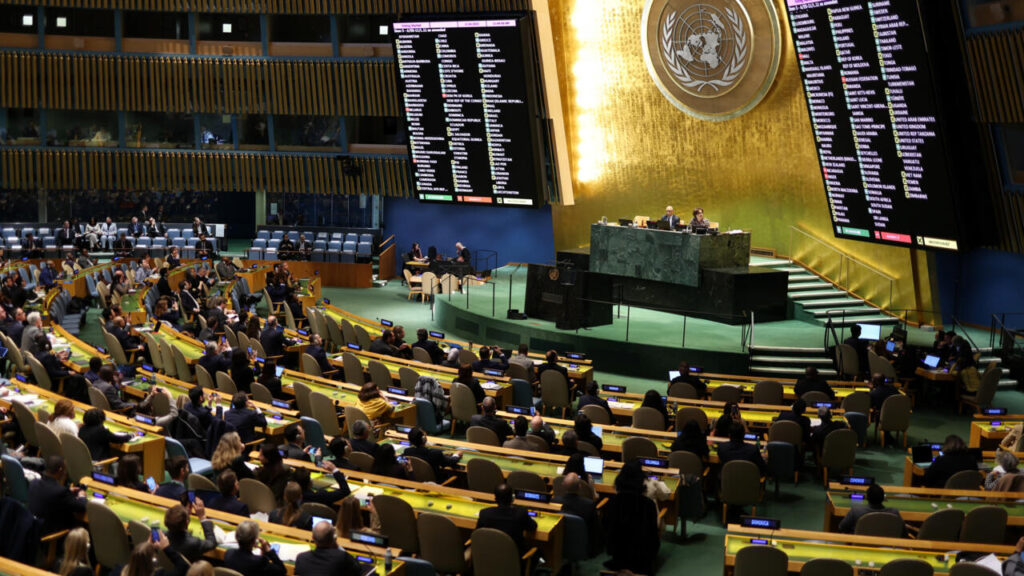The United States failed to secure approval from the UN General Assembly for its resolution aimed at ending the war in Ukraine without explicitly citing Russian aggression.

The vote, held on the third anniversary of Russia’s full-scale invasion, was seen as a diplomatic win for Ukraine and a setback for the administration of President Donald Trump. Resolutions passed by the 193-member UN body are non-binding but serve as a measure of international sentiment.
Despite this, the vote also reflected a decline in global support for Ukraine. A separate, European-backed Ukrainian resolution demanding Russia’s immediate withdrawal passed with 93 votes in favor, 18 against, and 65 abstentions—significantly lower than previous resolutions where over 140 nations condemned Russia’s actions.
The United States had reportedly urged Ukraine to withdraw its resolution in favor of the US proposal, according to diplomatic sources. When Ukraine refused, the assembly revised the US resolution to explicitly acknowledge Russia’s invasion, aligning it more closely with Kyiv’s stance.
The amended resolution was then put to a vote, receiving 93 votes in favor, 8 against, and 73 abstentions. Ukraine supported the measure, while the US abstained and Russia opposed it.
Ukrainian Deputy Foreign Minister Mariana Betsa reaffirmed her country’s right to self-defense in response to Russia’s invasion, emphasizing that the aggression violates the UN Charter’s principles of sovereignty and territorial integrity.
“As we mark three years of this devastation—Russia’s full invasion against Ukraine—we call on all nations to stand firm and take the side of the Charter, the side of humanity, and the side of just and lasting peace, peace through strength,” Betsa stated.
US Deputy Ambassador Dorothy Shea acknowledged the failure of previous UN resolutions condemning Russia to halt the war. “What we need is a resolution marking the commitment from all UN member states to bring a durable end to the war,” Shea said.
The competing resolutions highlight growing tensions between the US and Ukraine following Trump’s unexpected diplomatic overtures to Moscow. His administration’s negotiations with Russia—conducted without involving Ukraine or European allies—have raised concerns among Western nations.
Trump’s remarks referring to Ukrainian President Volodymyr Zelenskyy as a “dictator” and his unfounded claims that Kyiv initiated the conflict have further strained relations. Zelenskyy countered by accusing Trump of being influenced by Russian disinformation.
As a result, the Trump administration not only declined to endorse Ukraine’s UN resolution but also introduced its own version at the last minute, urging allies to support it instead. The move comes ahead of Trump’s scheduled meeting with French President Emmanuel Macron in Washington.
Meanwhile, China, which holds the UN Security Council presidency this month, has scheduled a separate vote on the US proposal in the Security Council on Monday afternoon.



